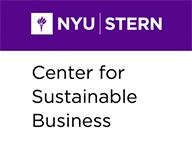Faculty News
—
Professor Arun Sundararajan is interviewed about the future of Amazon, Apple and Google and the role artificial intelligence will play in their successes
—

Excerpt from Fox Business -- "If I look forward 10 years, we will be speaking to our devices rather than pressing them. All of these services - healthcare, retail - will be integrated tightly into this intelligent device. So Apple, Google and Amazon are all battling to be the device that you talk to." (0:37)
Faculty News
—

Excerpt from Fox Business -- "If I look forward 10 years, we will be speaking to our devices rather than pressing them. All of these services - healthcare, retail - will be integrated tightly into this intelligent device. So Apple, Google and Amazon are all battling to be the device that you talk to." (0:37)





















